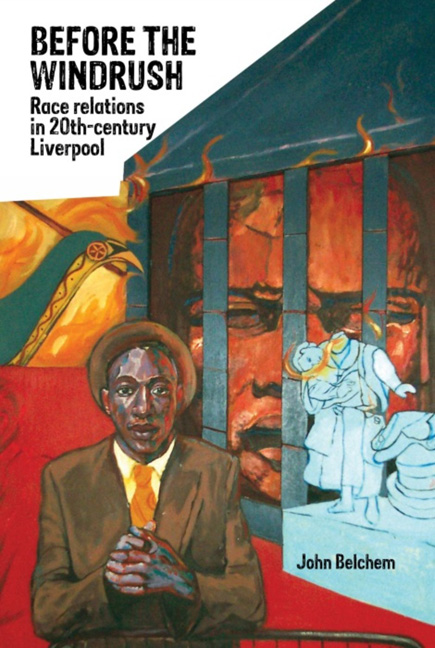Book contents
- Frontmatter
- Dedication
- Contents
- List of illustrations
- List of tables
- List of abbreviations
- Acknowledgements
- Preface
- Introduction: ‘The most disturbing case of racial disadvantage in the United Kingdom’
- Chapter One Edwardian cosmopolitanism
- Chapter Two Riot, miscegenation and inter-war depression
- Chapter Three Wartime hospitality and the colour bar
- Chapter Four Repatriation, reconstruction and post-war race relations
- Chapter Five Race relations in the 1950s
- Chapter Six 1960s: race and youth
- Chapter Seven The failure of community relations
- Chapter Eight ‘It took a riot’
- Sources consulted
- Index
Introduction: ‘The most disturbing case of racial disadvantage in the United Kingdom’
- Frontmatter
- Dedication
- Contents
- List of illustrations
- List of tables
- List of abbreviations
- Acknowledgements
- Preface
- Introduction: ‘The most disturbing case of racial disadvantage in the United Kingdom’
- Chapter One Edwardian cosmopolitanism
- Chapter Two Riot, miscegenation and inter-war depression
- Chapter Three Wartime hospitality and the colour bar
- Chapter Four Repatriation, reconstruction and post-war race relations
- Chapter Five Race relations in the 1950s
- Chapter Six 1960s: race and youth
- Chapter Seven The failure of community relations
- Chapter Eight ‘It took a riot’
- Sources consulted
- Index
Summary
Hailed in its late-Victorian heyday as ‘the New York of Europe, a world-city rather than merely British provincial’, Liverpool, the human and commercial entrepôt linking the old world and the new, was a vibrant (if not always harmonious) contact zone between different ethnic groups with differing needs and intentions as transients, sojourners or settlers, categories by no means mutually exclusive. At the time of the 700th anniversary in 1907 of the granting of letters patent to the borough, polyglot Liverpool, the nation's second metropolis, stood proudly above the ‘Coketown’ monoculture of adjacent Lancastrian textile and industrial towns. In recent decades, however, as the history published to mark the 800th anniversary in 2007 acknowledged, the position has been reversed. Liverpool has become one of the least ethnically varied cities in the country, with only small numbers of ‘new Commonwealth’ migrants arriving after 1945, the proportions of Hindus, Muslims and Sikhs falling significantly below the national average for England and Wales. The strapline of the successful European capital of culture bid, ‘The world in one city’, drew upon Liverpool's historical legacy rather than its contemporary complexion in 2008.
Changes in Liverpool's demographic mosaic need to be understood within broad processes of imperialism, decolonisation and economic decline. The starting point for understanding the city's troubled history of race relations, however, is a specific contextual factor: legacies and memories of the slave trade. The ‘deep shadow’ cast by this heinous trade continues, and its horrors and inhumanity should never be forgotten. However, the extent of any significant demographic continuity in the Liverpool black community back to the days of the slave trade is open to question. Although the apex of the infamous ‘triangular’ trade across the Atlantic, Liverpool was not itself a major site for the sale of slaves (other than individuals sold by ships’ captains as servants). Even so, by the late eighteenth century Liverpool was the home of what Ray Costello describes as ‘a free black community drawn from many sources’, including servants, students of noble descent sent for education along with the sons and daughters of African merchants and slavers, and ‘dual heritage’ children (to use present-day terminology) of white plantation owners and African slave women. Numbers grew in ‘Britain's oldest Black community’ with the influx of discharged black soldiers, former slaves who had fought for the defeated British in the American War of Independence (1775–83).
- Type
- Chapter
- Information
- Before the WindrushRace Relations in 20th-Century Liverpool, pp. 1 - 16Publisher: Liverpool University PressPrint publication year: 2014



